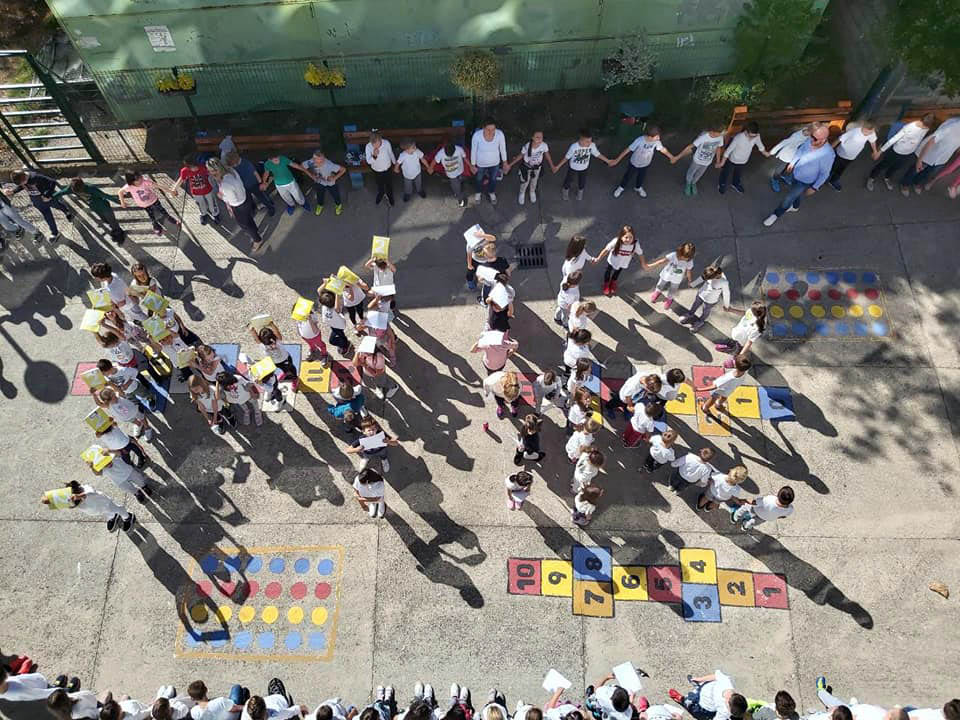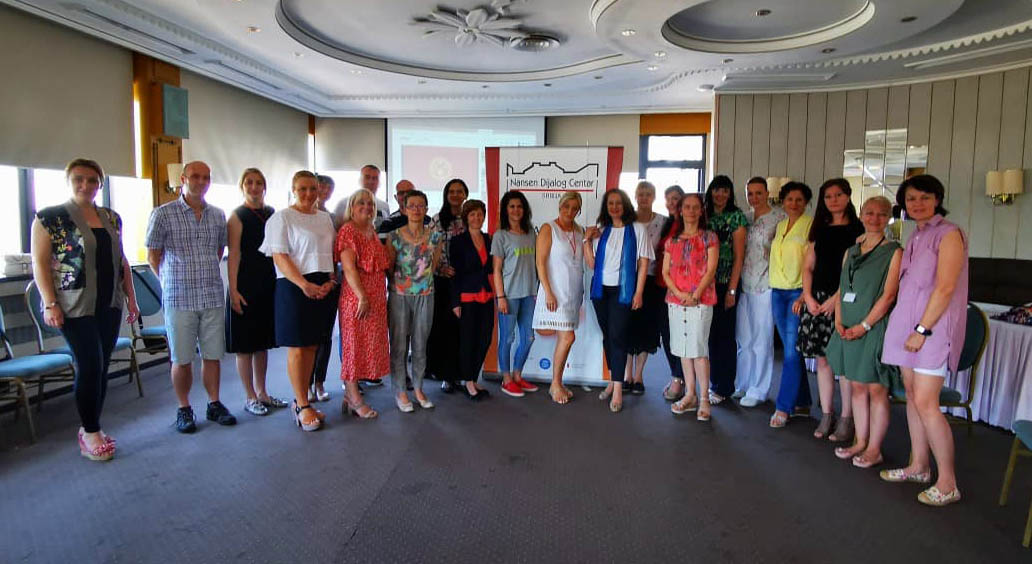Global Partnership for the Prevention of Armed Conflict (GPPAC)
What is GPPAC?
The Global Partnership for the Prevention of Armed Conflict (GPPAC) is a global network led by civil society organisations (CSOs) actively working to prevent violent conflict and build more peaceful societies. The network consists of 15 regional networks, with priorities and agendas specific to their environment. Each region is represented in the International Steering Group, which jointly determines our global agenda and approach.
Vision GPPAC seeks a world where violence and armed conflicts are prevented and resolved by peaceful means based on justice, gender equity, sustainable development and human security for all.
Mission GPPAC is a global network that links civil society with relevant local, national, regional and international actors and institutions to collectively contribute to a fundamental change in dealing with violence and armed conflicts: a shift from reaction to prevention. Our main work focuses around human security, gender, peace education, youth empowerment, dialogue and sustainable development goals.
GPPAC in the Western Balkans
GPPAC work in the Western Balkans stems from the recognition that the regional context is marked by political and economic instability, rising youth unemployment and unresolved issues from the wars of 1990s, which results in the institutionalisation of ethnic divisions, including in the educational system.
In this context, our regional members continue to work on conflict prevention and peacebuilding and to dedicate significant efforts to Education for Peace, to the Prevention of Violence, Radicalization and Extremism among Youth and School Mediation in Multicultural Communities through capacity building trainings for teachers, parents, students and representatives of local communities and through classroom and extra-curricular activities in schools. These activities all follow the same overarching goal: to empower the local population to be resilient to negative influences of populist politics and to continuously facilitate cross-border cooperation to support reconciliation and create peaceful societies in the Western Balkans.
As peacebuilders from around the world, we call for an inclusive, people-centered peacebuilding response to the COVID-19 pandemic
Education for Peace – Approach and results
Since 2006, our regional members – professional, skilled and motivated teachers/educators, school counselors, psychologists, school management, educational advisers from ministries of education and representatives of peacebuilding CSOs from Serbia, Bosnia and Herzegovina, Croatia and Montenegro – have worked to implement education for peace. Our education work also includes the integration of divided communities and school mediation in multicultural communities.
Interethnic dialogue and cross-sectoral cooperation are trademarks of GPPAC’s education work in the Western Balkans. The approach that regional members have implemented is to integrate the values and educational contents for peace into official curricula.
This approach allows more efficient and systematic transfer of knowledge and skills from teachers to students and for young generations to embrace the acquired values and become future agents of change. Core activities include professional development of teachers, capacity building for students and organising regular interethnic activities, all in partnership with ministries of education.
Sustainability and support of the local population is secured by involving local authority representatives in our activities and jointly coordinating public events. Thanks to this approach, the members created accredited programmes of teacher professional development in the field of school mediation; integrated education curricula in segregated schools; curricula supporting interethnic dialogue and interculturalism in divided communities. They also established long-term partnerships with decision-makers and actors who can influence positive change.
Although the regional context remains complex, multiple positive examples of cross-sectoral cooperation exist across the region. For example, in Bosnia and Herzegovina, NDC Mostar’s constructive approach in engaging diverse stakeholders in the education sector resulted in the formal recognition of integrated education programmes through a memorandum of cooperation with the Cantonal Ministry of Education.
In the multi-ethnic province of Vojvodina in Serbia, the school mediation professional development programme for teachers is implemented by NDC Serbia in cooperation with the Ministry of Education educational advisers and supported by local authorities.
Sharing knowledge and improving practice
Another priority of GPPAC’s regional members is to make their knowledge and insights available and to foster peer-learning. To this end, our members developed valuable teaching tools and contributed to regional, cross-regional and global sharing of expertise through GPPAC.
Available teaching tools for teachers and peace educators include:
- The „Education for Peace – experiences from practice“ handbook (English version )
- The „Obrazovanje za mir-Iskustva iz prakse“ handbook (Serbian version)
- GPPAC’s Human Security Handbook – translation of conflict assessment and planning tools (Serbian and Montenegrin versions)
In addition, experienced trainers and education specialists from our region were guest presenters of GPPAC webinars organised by the Peace Education and Improving Practice Working Group:
- „Tools for conflict analysis: the Onion and Conflict Mapping“ – Presenters: Tatjana Popović, NDC Serbia and Elvir Đuliman, NDC Mostar
- „School Mediation in Multi-Ethnic Communities in Serbia“. Presenters: Tatjana Popović, NDC Serbia and Biljana Lajović, School Psychology Specialist
Our regional members actively participate in GPPAC cross-regional exchanges. For example, NDC Serbia recently hosted a study visit on peace education for Women for Development and Institute of Education from Armenia
Prevention of Radicalisation and Violent Extremism among Youth
Under this new thematic priority, we aim to:
- Strengthen the capacities of regional members to continue working jointly on the prevention of violent behaviour and the prevention of radicalisation of youth in multiethnic local communities by equipping them with necessary skills, knowledge and methodologies
- Empower youth to be active peacebuilders and promoters of diversity and tolerance in their local communities
To meet these objectives and approach these challenges, our members are engaged in professional development training.
A series of workshops designed specifically for teachers will also take place in 2021.
Contacts
For more information about upcoming activities , feel free to contact our regional representatives and to follow us on Facebook.
Regional Secretariat
Nansen Dialogue Centre Mostar
Alekse Šantića/Tvrtka Miloša 19
88000 Mostar, Bosnia and Herzegovina
Regional Representative
Elvir Đuliman
Mostar, Bosnia and Herzegovina
elvir@ndcmostar.org
Regional Liaison Officer
Dragana Šarengaća
Belgrade, Serbia
dragana.ndcserbia@nansen-dialogue.net
from the Western Balkan involved in the GPPAC
To be done
To be done
To be done



